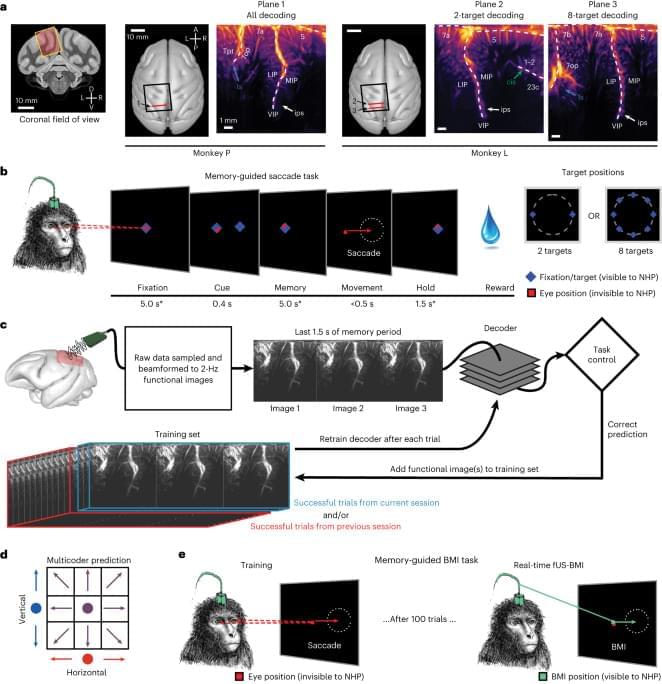Scientists believe a treatment derived from used coffee grounds could help prevent neurodegenerative disorders such as Alzheimer’s, Parkinson’s, or Huntington’s.



In the few seconds it will take you to read this sentence, your sense of time may expand and contract, and your perception of the world could shift in ways you wouldn’t notice.
These subtle effects on the brain are imperceptible, ethereal tugs from the heart beating away inside your chest which, according to a new study, boosts motor function in short bursts too.
Neuroscientist Esra Al of the Max Planck Institute for Human Cognitive and Brain Sciences in Germany has been studying the heart’s influence on the brain for several years, building upon decades-old research and recent studies with more robust methods.
Good telescope that I’ve used to learn the basics: https://amzn.to/35r1jAk.
Get a Wonderful Person shirt: https://teespring.com/stores/whatdamath.
Alternatively, PayPal donations can be sent here: http://paypal.me/whatdamath.
Hello and welcome! My name is Anton and in this video, we will talk about the incredible effects gut microbiome has on our body.
Links:
https://www.clarkson.edu/news/microbes-gut-might-affect-pers…s-research.
https://www.smithsonianmag.com/smart-news/fecal-transplants-…180978416/
https://www.nature.com/articles/s41586-021-03532-0
https://www.nature.com/articles/s43587-021-00093-9
https://en.wikipedia.org/wiki/Gut%E2%80%93brain_axis.
https://en.wikipedia.org/wiki/Gut_microbiota.
https://www.mdpi.com/2072-6643/14/3/466
#microbiome #gut #bacteria.
0:00 Gut Microbes Intro.
0:55 You are what you eat…on an entirely different level.
1:55 Gut Brain communication.
2:50 Important functions.
3:35 Additional function we never knew about.
4:10 Surprising diversity of genes.
5:10 Modern evolution and how it affected bacteria.
6:10 It was different in ancient humans.
8:10 Even more surprising discoveries from mice — poop transplants.
10:25 Affects our brains and our mood.
11:50 Even changes our personalities?!
Support this channel on Patreon to help me make this a full time job:
https://www.patreon.com/whatdamath.
Bitcoin/Ethereum to spare? Donate them here to help this channel grow!
bc1qnkl3nk0zt7w0xzrgur9pnkcduj7a3xxllcn7d4
or ETH: 0x60f088B10b03115405d313f964BeA93eF0Bd3DbF
Space Engine is available for free here: http://spaceengine.org.

The company says that the device can help users work, create, and explore in their dreams.
Fizkes/iStock, Prophetic.
Prophetic, founded in March this year, has created a headpiece called the “Halo” that can induce a state of lucid dreaming. Lucid dreaming is when you are aware that you are dreaming and can manipulate the content of your dreams. Prophetic says that using the Halo can turn your dreams into a virtual workspace where you can do anything you want.

Many attempts have been made to correlate degrees of both animal and human intelligence with brain properties. With respect to mammals, a much-discussed trait concerns absolute and relative brain size, either uncorrected or corrected for body size. However, the correlation of both with degrees of intelligence yields large inconsistencies, because although they are regarded as the most intelligent mammals, monkeys and apes, including humans, have neither the absolutely nor the relatively largest brains. The best fit between brain traits and degrees of intelligence among mammals is reached by a combination of the number of cortical neurons, neuron packing density, interneuronal distance and axonal conduction velocity—factors that determine general information processing capacity (IPC), as reflected by general intelligence.
Given by Dr. Caroline Robertson of the Dartmouth Autism Research Initiative, in the Department of Psychological and Brain Sciences.
Sponsored by: Center for Cognitive Neuroscience at Dartmouth.
Recorded October 18, 2018

BMIs using intracortical electrodes, such as Utah arrays, are particularly adept at sensing fast changing (millisecond-scale) neural activity from spatially localized regions (1 cm) during behavior or stimulation that is correlated to activity in such spatially specific regions, for example, M1 for motor and V1 for vision. Intracortical electrodes, however, struggle to track individual neurons over longer periods of time, for example, between subsequent recording sessions15,16. Consequently, decoders are typically retrained every day15. A similar neural population identification problem is also present with an ultrasound device, including from shifts in the field of view between experiment sessions. In the current study, we demonstrated an alignment method that stabilizes image-based BMIs across more than a month and decodes from the same neurovascular populations with minimal, if any, retraining. This is a critical development that enables easy alignment of a previous days’ models to a new day’s data and allows decoding to begin with minimal to no new training data. Much effort has focused on ways to recalibrate intracortical BMIs across days that do not require extensive new data18,19,20,21,22,23. Most of these methods require identification of manifolds and/or latent dynamical parameters and collecting new neural and behavioral data to align to these manifolds/parameters. These techniques are, to date, tailored to each research group’s specific applications with varying requirements, such as hyperparameter tuning of the model23 or a consistent temporal structure of data22. They are also susceptible to changes in function in addition to anatomy. For example, ‘out-of-manifold’ learning/plasticity alters the manifold24 in ways that many alignment techniques struggle to address. Finally, some of the algorithms are computationally expensive and/or difficult to implement in online use22.
Contrasting these manifold-based methods, our decoder alignment algorithm leverages the intrinsic spatial resolution and field of view provided by fUS neuroimaging to perform decoder stabilization in a way that is intuitive, repeatable and performant. We used a single fUS frame (∼ 500 ms) to generate an image of the current session’s anatomy and aligned a previous session’s field of view to this single image. Notably, this did not require any additional behavior for the alignment. Because we only relied upon the anatomy, our decoder alignment is robust, can use any off-the-shelf alignment tool and is a valid technique so long as the anatomy and mesoscopic encoding of relevant variables do not change drastically between sessions.
It remains an open question as to how much the precise positioning of the ultrasound transducer during each session matters for decoder performance, especially out-of-plane shifts or rotations. In these current experiments, we used linear decoders that assumed a given image pixel is the same brain voxel across all aligned data sessions. To minimize disruptions to this pixel–voxel relationship, we performed image alignment within the 2D plane. As we could only image a 2D recording plane, we did not correct for any out-of-plane brain shifts between sessions that would have disrupted the pixel–voxel mapping assumption. Future fUS-BMI decoders may benefit from three-dimensional (3D) models of the neurovasculature, such as registering the 2D field of view to a 3D volume25,26,27 to better maintain a consistent pixel–voxel mapping.

A recent study discovered that for individuals who often feel lonely, the distinction between actual friends and beloved fictional characters gets blurred in the part of the brain that is active when thinking about others, a new study found.
The study involved brain scans of “Game of Thrones” enthusiasts as they reflected on different characters from the series and their real-life friends. Prior to the study, all participants had undergone a loneliness assessment.
The difference between those who scored highest on loneliness and those who scored lowest was stark, said Dylan Wagner, co-author of the study and associate professor of psychology at The Ohio State University.
